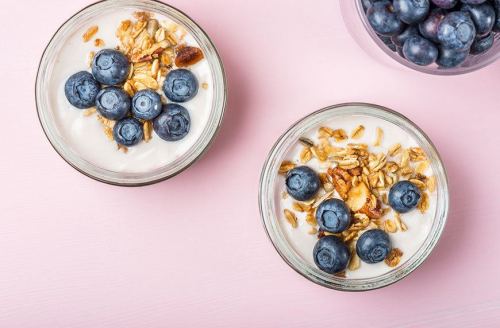A top-notch smartwatch is well-suited to track a range of activity levels and vitals, displaying data on everything from your step count and sleep stats to your heart rate. For folks who frequently reference this data for a better baseline understanding of their overall bodily function and health profile, certain deviations from their normal resting heart rate undoubtedly stand out. And one of those—an elevated heart rate—is connected not only to an intense workout, but also to drinking alcohol.
Experts in This Article
nutritionist and co-founder of Health-Ade
registered dietitian and prenatal and postnatal health expert
attending cardiologist and the director of Women and Heart Disease at Lenox Hill Hospital in New York City
How does alcohol increase heart rate?
A 2020 meta-analysis conducted by four researchers using the Cochrane Hypertension Information Specialist found that the consumption of a single drink (defined as a 12-ounce beer, a five-ounce glass of wine, or an ounce-and-a-half of liquor) resulted in, on average, a five-beat-per-minute elevation in heart rate over the course of the next six hours. Consuming two or more drinks was linked to an even more pronounced heart rate increase and was sustained over a 24-hour period.
Why does my heart rate increase when I drink alcohol?
“Moderate to heavy drinking over an extended period of time may increase the risk of a dangerous type of irregular heartbeat in adults over 40 years of age,” says cardiologist Suzanne Steinbaum, MD, DO, medical expert for American Heart Association’s Go Red for Women movement. “Atrial fibrillation, or AFib, occurs when the heart’s upper chambers beat irregularly and can increase stroke risk fivefold if left untreated. The condition is estimated to affect 12.1 million people in the United States by 2030. Studies have linked higher alcohol consumption to an increased risk of AFib. Common symptoms can include heart palpitations, fatigue, or even chest pain after drinking alcohol.
Why is my heart rate weird after drinking?
A significant part of the problem, Dr. Steinbaum says, is that many people do not consume enough water when drinking alcohol. “If your heart rate increases after drinking, it is most likely due to dehydration,” she explains. “To help counteract this, make sure that you are staying properly hydrated when consuming alcohol.” If you’ve been hydrating and you’re still feeling like your heart is pounding harder than usual, or if you feel your heart racing at night or affecting your sleep after drinking, Dr. Steinbaum offers some tips on how to slow your heart rate after drinking alcohol. First and foremost, she recommends slowing your heart rate by relaxing. “You can try practicing simple relaxation techniques, like deep breathing or going outdoors for some fresh air. Also, make sure to avoid overexerting yourself while drinking,” she adds.
Does alcohol make your resting heart rate higher?
So, does alcohol increase blood pressure, too? It definitely can. Beyond your heart rate, excess consumption of alcohol can also have adverse effects on your blood pressure. “If you have been diagnosed with high blood pressure, your doctor may advise you to reduce the amount of alcohol you drink,” Dr. Steinbaum says. “Reducing the amount of alcohol you consume can also help to prevent high blood pressure. If you do drink, limit your alcohol consumption to no more than two drinks per day for men and no more than one drink per day for women.”
How can drinking alcohol affect the gut?
Alcohol can also have negative effects on your gastrointestinal system and gut health, changing your microbiome makeup1 and inhibiting the normal production of digestive enzymes and juices. “Too much alcohol wreaks havoc on the gut,” explains Health-Ade co-founder Daina Trout, MS, who has a background in nutritional biochemistry. “It causes inflammation both inside and outside your digestive tract, increases your risk of infection and indigestion, and it even messes with your sleep.”
Not to mention, drinking alcohol can also cause diarrhea. In short, alcohol can act as a diuretic, which explains why you may need to pee frequently while tossing back some drinks. Additionally, booze contains ethanol which can increase gut movement, ultimately speeding up digestion without giving your gut a chance to absorb water, increasing the chances of experiencing diarrhea.
Does this all apply to all types of booze?
But wait. Is red wine good for your heart? While some studies have suggested that drinking red wine in limited quantities can help to increase the levels of antioxidants in your body, Dr. Steinbaum is quick to point out that the American Heart Association does not recommend drinking wine or any other form of alcohol to gain potential health benefits. Lauren Manaker, MS, RDN, LD, CLEC, CPT, a registered dietitian based in Charleston, also points out that although red wine has some compounds linked to positive health benefits, it’s still alcohol at the end of the day. “Alcohol is classified as a Group 1 carcinogen by the International Agency for Research on Cancer, which is the same classification as tobacco,” Manaker says. That said, the grouping encompasses all types of alcohol. As such, red wine is grouped together with other liquors, such as vodka.
So, how much alcohol is too much? Of course, it’s worth noting that the deleterious effects of alcohol are not a result of the occasional beverage. Negative side effects happen generally when, Dr. Steinbaum says, folks drink “more than a few times a week and/or have more than two drinks at a time.” (That being said, even a single drink can speed up your heart rate.) Meanwhile, Manaker points out that the Academy of Nutrition and Dietetics suggests that men consume no more than two alcoholic drinks a day and women no more than one alcoholic beverage per day.
Overall, experts like Trout and Dr. Steinbaum agree that in order to achieve optimal heart health, alcohol should be consumed in moderation. “Take steps to lower cholesterol, control high blood pressure, get enough physical activity, stay away from tobacco and excessive amounts of booze, and follow a healthy diet. Making lifestyle choices that decrease these risk factors is the best way to keep your cardiovascular system in optimal shape,” says Dr. Steinbaum. From a dietitian’s perspective, Manaker encourages folks to avoid any consumption of alcohol if they are focused on supporting their health, as it isn’t conducive to promoting healthy aging.
What can you drink to help lower your heart rate?
Luckily, there are plenty of ways to lower your heart rate that can be done in both the near and long term. On the other hand, there are other (non-booze) drinks that lower heart rates that can help. “Some juices that may help lower blood pressure, including beetroot juice and pomegranate juice,” Manaker says. For context, beets are a great source of folate, a key vitamin essential for blood health recommended by cardiologists. (A 100-gram serving of beet juice contains 26 micrograms of folate. The Recommended Dietary Allowance of folate is 400 grams for most folks.) Meanwhile, pomegranate is packed with potassium (214 milligrams of potassium per 100-gram serving), an important nutrient for heart health connected to lowering the risk of heart disease and stroke and keeping sodium levels balanced.
That said, keeping your heart rate levels normal ultimately boils down to maintaining adequate levels of hydration. “General dehydration can result in your heart rate increasing. Because of this, taking steps to maintain hydration may help. So while this may not sound too exciting, plain old water may be one of the best solutions for those who want to support a healthy heart rate.” Although adding a few hydrating foods to your daily routine can always help.
Discover what a registered dietitian thinks about the highly-popular spiked seltzers on the market:
Engen, Phillip A et al. “The Gastrointestinal Microbiome: Alcohol Effects on the Composition of Intestinal Microbiota.” Alcohol research : current reviews vol. 37,2 (2015): 223-36.
↩︎
Sign Up for Our Daily Newsletter
Get all the latest in wellness, trends, food, fitness, beauty, and more delivered right to your inbox.
Got it, you've been added to our email list.










